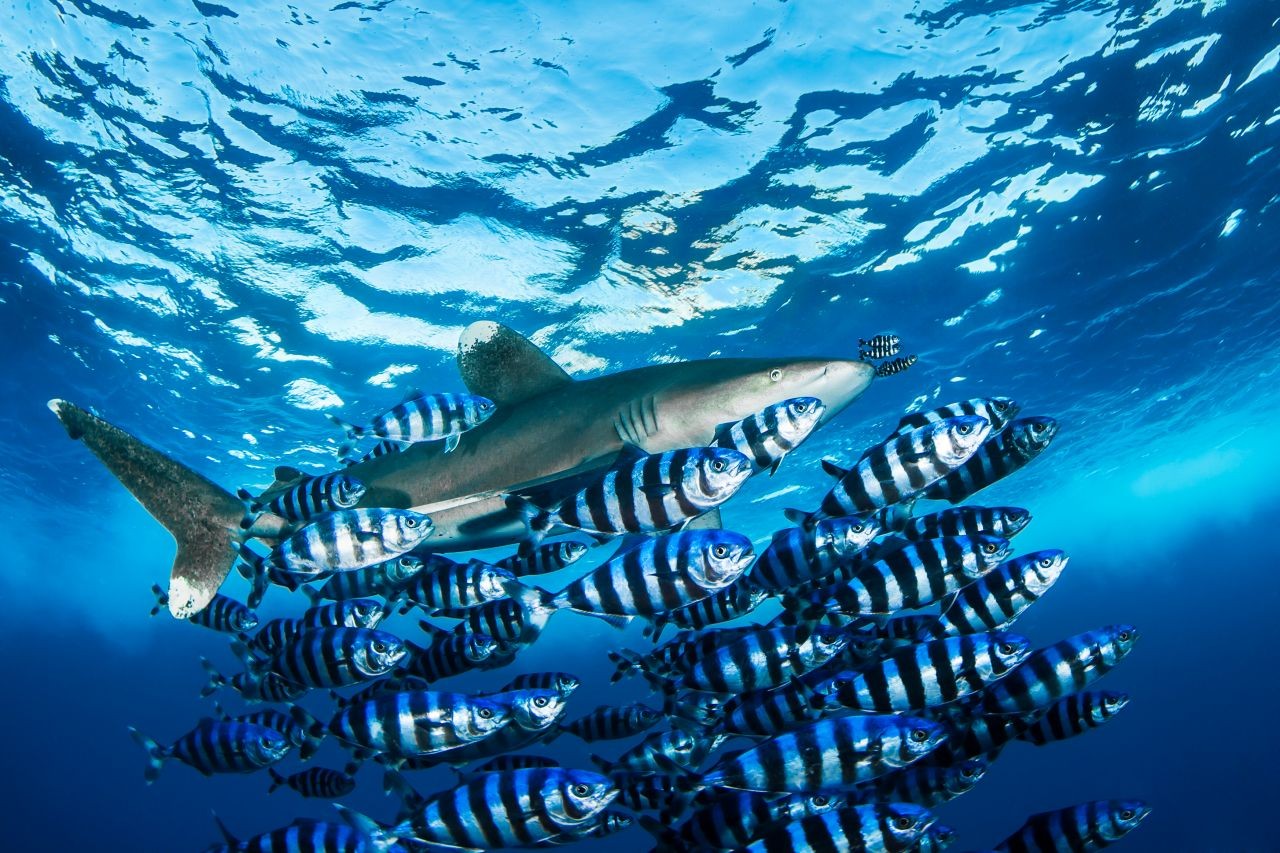OCEANROAMERS manages the European (BE) IADP - DIVE PROFESSIONALS non profit organization.
We are headquartered in Egypt's Ain Sokhna, where we are spearheading, marine conservation & sustainable development programs in the Red Sea. And overseeing the development of the MAERC project.
For additional information, don't hesitate to reach out to us, via our contact page.
Official Press Releases | Blogs & Vlogs
Blogs & Vlogs
“Shark Incident” in the Red Sea - thedivepro report / Updated
Thought of the day goes to the recent “Shark Incident” in the Red Sea.
Let's start by making sure we understand the following statement:
"The Red Sea is a unique and most beautiful, tropical eco system this however includes an entire array of predators. It is their Sea, we are just mere visitors."
Then now to the point: Are attacks increasing?
Taking into account that more and more 'hoomans' invade deeper and deeper into their hunting grounds. The resounding answer is No!
Possible factors, explaining the attack:
- As fish stocks in deeper waters are being depleted, predators move into shallower waters.
- Cattle transports in The Red Sea are known to throw dead livestock overboard before reaching port to avoid port cleanup charges.
The best and most plausible explanation in this case, comes from our colleagues at Red Sea Sharks with the fact, that this shark looked very underweight for it's size. This may point to a digestive problem like say plastic or other marine debris obstructing the digestive tract of the shark. So the shark is extremely hungry attacks prey, but just cannot swallow. Which would account for the aggressive behavior witnessed earlier on in the day by other divers.
As to what can be learned from this:
- Taking non experienced snorkelers in deep waters (certainly if that area is known for large animals encounters) at both Sunrise or Sunset, should be avoided unless they are properly briefed and demonstrate a CALM attitude. Caution is to be exerted with children.
- If a shark displays an attitude that puts you as a snorkeling guide bad at ease, don't compromise and play it safe. First of all take on a calm but stern attitude and group control. Immediately go towards the shallow reef deck and ensure that you position yourself between the shark and the most vulnerable of your group members.
- Boat and diving crews who witness aggressive behaviour of a predator, should inform their colleagues in the area. (that's why we have VHF radios.) Use channel 16 (emergency channel-usually dual monitored), call or send a message to either the Coast guard, EEAA or HEPCA, CDWS or all of them, just to make sure everyone got the message.
Now to the point as what to do with the area and predator, after such an incident.
The ideal process would be:
- Immediately close the surrounding area for all water activities in a 5 N. Mile radius.
- Monitor the area (for at least 6 weeks - regardless of identification results)
- Send a survey team with a drone, and small boat to locate the shark.
- Any predator fitting description and size in the area should be tagged. (these results could be used to compare them to cattle transport ships movements for instance.)
- If identification of the shark is successful (5 N. mile restriction can be lifted) preferably a catch and relocate scheme.
Finally…
Each situation is different, conditions and mood of predator are all variables. Also sometimes easier said than done.
Speaking on a personal level as a Red Sea professional since the early 90's, the Red Sea predator encounters are part of why I fell in love with The Red Sea in the first place.
It is us who are visiting their territory, and not vice versa. We should be respectful, disciplined and alert at all times; when leading groups. Ensure to add proper shark behaviour in ALL your orientation briefings, know your emergency procedures (review internal procedures with your support crew), communication channels and more importantly don't hesitate to use them!
I sincerely wish all involved a speedy recovery, I am sure this event has scarred those involved on a heavy mental level. My heart, thoughts and prayers go out to the little boy who is still fighting in ICU, but also especially moral support my friend and our colleague Hamada.
Please don't hesitate to add your cronstructive comments, suggestions or questions.
Safe Diving to all,
THEOCEANROAMER
By accepting you will be accessing a service provided by a third-party external to https://www.oceanroamers.biz/


